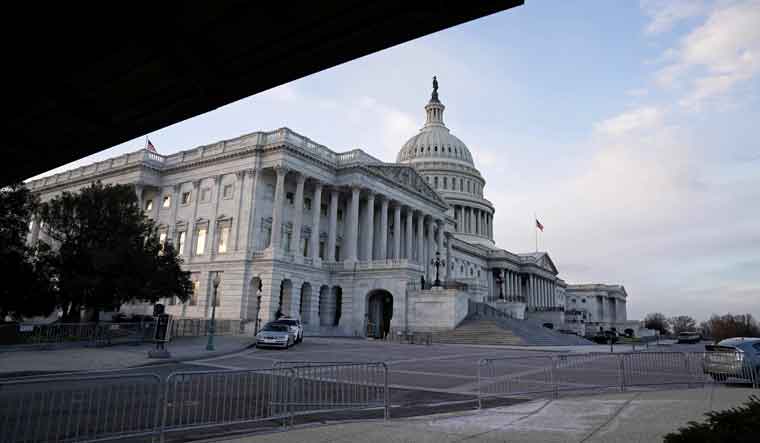A historic US default on its debt obligations due this month has been averted after U.S. Senate leaders agreed to extend the debt ceiling, increasing the debt limit by $480 billion from the current $28.4 trillion.
"We have reached agreement to extend the debt ceiling through early December and it's our hope we can get this done as soon as today," Schumer said referring to a vote on passage of the legislation.
If approved by the Senate and the House of Representatives, the new debt ceiling would be $28.9 trillion. This would help the Democrats move Joe Biden's $3.5 trillion economic plan aiming to boost US infrastructure and welfare programs.
Earlier, on September 30, Congress passed a short-term funding bill through December 3, averting a government shutdown due on October 1. The next debt ceiling deadline, October 18, requires Congressional action to suspend or raise it, pending which the US would default on its debt for the first time in its history. However, even the current deal represents only a short-term solution, with the next debt ceiling in December, which will require Congress to take a decision before breaking for the holidays.
Republican Minority Leader Mitch McConnel said the move would "moot Democrats’ excuses about the time crunch they created and give the unified Democratic government more than enough time to pass standalone debt limit legislation through reconciliation."
Republicans had earlier threatened to filibusters Democrat efforts to suspend the limit through December 16, 2022. The GOP has sought for Democrats to pass their debt limit extension measures using a legislative process called "reconciliation"---which would allow budget bills to be passed through a simple majority (plus the tie-breaking vote of the vice-president) instead of needing 60 out of 100 of the Senate votes. However, reconciliation has strict limits on the ambit of bills passed via it, and such a route would require significant renegotiation of the infrastructure bill.
Earlier Wednesday, Biden enlisted top business leaders to push for immediately suspending the debt limit, saying the approaching deadline created the risk of a historic default that would be like a "meteor" that could crush the economy and financial markets.
At a White House event, the president shamed Republican senators for threatening to filibuster any suspension of the $28.4 trillion cap on the government's borrowing authority. He leaned into the credibility of corporate America a group that has traditionally been aligned with the GOP on tax and regulatory issues to drive home his point as the heads of Citi, JP Morgan Chase and Nasdaq gathered in person and virtually to say the debt limit must be lifted.
Senior business leaders and advisors have warned of the catastrophic impact of a US debt default.
“A default would send shock waves through global financial markets and would likely cause credit markets worldwide to freeze up and stock markets to plunge,” the White House Council of Economic Advisers said in a new report. “Employers around the world would likely have to begin laying off workers.”
With inputs from PTI




